Three ways COVID-19 has changed me as a doctor

COVID-19 has changed the world, the medical profession, and the NHS in ways we are only beginning to understand.
In my A&E department, we have seen patients with oxygen saturations lower than we previously thought were possible, treated our own hospital colleagues – some of whom went to ITU, broke more bad news down the phone than ever before, and I lost count of the number of my colleagues who went off sick with the virus.
And without doubt, COVID-19 has changed me as a doctor – the way I practice, think and am at work. Here are just three of the ways I’ve noticed.
- A mystery that demands a presence
One of the most upsetting things about being an A&E doctor during the pandemic was the absence of visitors and relatives in the hospital. This meant many of our patients suffered, and in some cases died, alone, with no loved ones around them. Watching so many patients suffering alone really shook me, as I know it did my colleagues.
One evening, I was chatting to a non-medical friend of mine about this, and she made an off-hand comment that transformed my mindset. In response to me telling her that so many of my patients were suffering alone, she responded ‘well at least they have you guys’. It was like a lightbulb had gone off in my head. What I realised was that in the absence of friends and family in the hospital, it was falling to us healthcare professionals to be that precious human presence in the midst of fear and suffering. Prof. John Wyatt often says, ‘Suffering is not a question that demands an answer. It is not a problem that demands a solution. It is a mystery that demands a presence.’ This is profoundly biblical.
In Romans 12, Paul exhorts the Roman church, ‘Love must be sincere’ (v9), followed by the command, ‘Rejoice with those who rejoice; mourn with those who mourn’ (v15). In other words, sincere love enters into and joins with the highs of others’ joys, and the lows of others’ suffering.
From that moment of my friend’s off-hand comment, I found myself holding more hands, asking ‘is there anything more I can do?’ more often, and simply staying at the bedside for a few more seconds, not to add any further treatment, but to just be with the patients in their suffering. I have no idea if it made any tangible difference, especially given I was often covered head-to-toe in protective equipment. But I know that if it was my loved-one in hospital, I would want their doctors and nurses to be that presence in my absence.
- Dying well
Near the start of the pandemic, what quickly became apparent was that COVID patients can deteriorate very rapidly, usually at around day 7-10 of infection. Some patients would come in and remain quite well-looking for a number of days, despite low saturations and awful blood results, but then suddenly deteriorate, and potentially die. Near the start of the pandemic, there was a noticeable increase in the number of in-hospital cardiac arrest calls in my hospital.
The disease progression of COVID forced all of us in A&E to routinely have discussions with patients and/or relatives around end-of-life-wishes and resuscitation very early in the hospital journey, for we knew deterioration could come suddenly. I would often have half a dozen or more of these conversations per day.
As emotionally draining as these conversations are, I began to find them strangely precious. As Christians we have the God-given mandate to value all human life, right up until the moment of death. In situations when we clearly cannot win the fight against death, we have a precious opportunity to show a final act of kindness and love by giving patients a peaceful and painless death rather than the trauma and indignity of futile interventions. In the words of Dame Cicely Saunders, the Christian nurse who pioneered palliative medicine: ‘You matter because you are you, and you matter to the end of your life. We will do all we can not only to help you die peacefully, but also to live until you die.’
- The pain of separation
With hospitals banning most visitors to their buildings, hospital doctors and nurses are spending a lot more time on the phone talking to relatives, especially when patients are elderly or unable to communicate much themselves. Usually, I would call relatives primarily for information-gaining purposes, for example to find out a collateral history or ascertain end-of-life wishes. However, I quickly realised that receiving a call from the doctor was an immensely precious and sought-after thing for relatives who had sent their loved-one through the locked doors of the hospital.
Hearing the gratitude and relief expressed by relatives when they receive a call from the hospital has made me much more ready to pick up the phone, not just as an information-gaining exercise, but also as an information-giving one. Calling relatives can be time-consuming and emotionally draining, and on a busy shift I have the tendency of avoiding it if at all possible. But oddly, calling relatives has also produced some of the most rewarding moments I have had during this pandemic. It is such a weird privilege to be the voice of patients to their relatives at their hour of need.
As Christ said ‘Truly I tell you, whatever you did for one of the least of these brothers and sisters of mine, you did for me.’ (Matthew 25:40)
Benjamin Chang is an FY2 doctor in North London, former President of Christians in Science London, and a member of the CMF Speakers Track. He recently spoke on the struggles being faced by health workers during the COVID-19 crisis on the Speak Life podcast


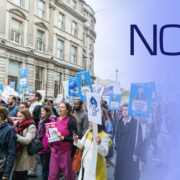
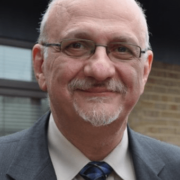
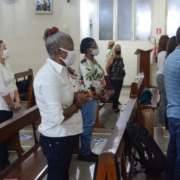


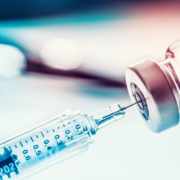

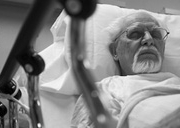


Leave a Reply
Want to join the discussion?Feel free to contribute!